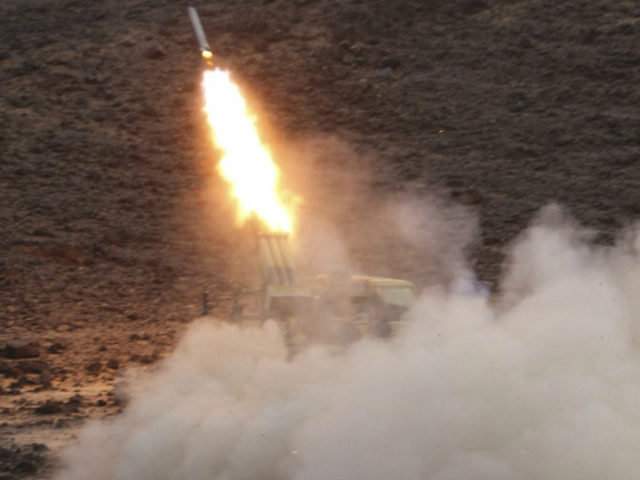The ballistic missiles that Yemen’s Houthi Shi’ite rebels fired at Saudi Arabia were designed and built in Iran, according to a United Nations (U.N.) report.
The Reuters news agency reported on the findings of the independent panel to the U.N. Security Council Thursday. “Design characteristics and dimensions of the components inspected by the panel are consistent with those reported for the Iranian designed and manufactured Qiam-1 missile,” the study is quoted as saying.
The U.N. panel did not determine the exact manner in which the Houthis came to have such missiles, derived from Soviet Scud-types and having a range of 470 miles, but posited that they came in on “land routes from Oman or Ghaydah and Nishtun in al Mahrah governorate (in Yemen) after ship-to-shore transshipment to small dhows, a route that has already seen limited seizures of anti-tank guided weapons.”
Iran denies supplying the weapons, but Saudi Arabia is convinced it did. The two regional powers are fighting a proxy civil war in Yemen, with Iran supporting the fellow Shi’ites of the Houthis rebels and former President Ali Abdullah Saleh and the Saudis backing the Aden-based government of Abdrabbuh Mansour Hadi.
The conflict in Yemen today is, in some ways, a continuation of the long-running Cold War conflict between North Yemen, the U.S. ally under Salah, and South Yemen, the Soviet client run by communists. Saleh’s base of power is now, as then, the predominantly Shi’ite northwestern part of the country. Saleh has made common cause with the Iran-back Houthi Islamists.
Saudi Arabia, the leading Sunni Islamist power, has launched numerous airstrikes against targets in Houthi-heavy areas, including the official capital of Sana’a. It has also blockaded Yemen to choke off this foothold of its arch-rival Iran, raising humanitarian concerns.
The Kingdom of Saudi Arabia has justified these moves largely based on the missile attacks by the Houthis. Four missiles have landed in the Kingdom since May of this year, including, most seriously, one that nearly struck the country’s largest airport, Riyadh’s King Khalid International Airport. The United States has backed its traditional ally in its assertion that Iran is facilitating the attacks, and these claims are now supported by the U.N. panel.

COMMENTS
Please let us know if you're having issues with commenting.